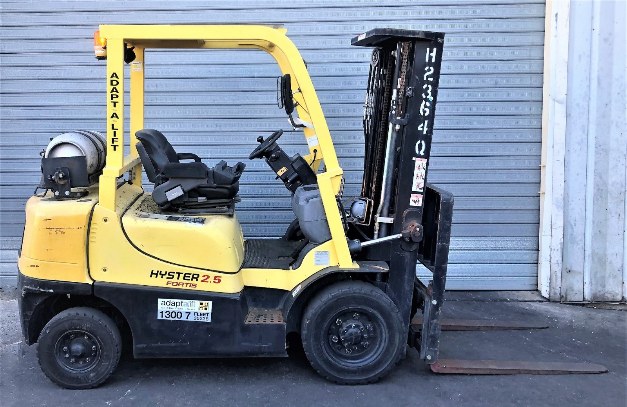As a business owner, you know your forklift is one of the most valuable assets you have in your warehouse. With so many models on the market, it’s difficult to narrow down which one is right for you. Luckily, with these nine specs to check when looking for forklifts for sale, it’s easy to find Lift Hero forklifts that will meet all your needs.
A Guide For Buying Forklifts For Sale
- Accessories and Attachments
In most cases, you can attach attachments to forklifts based on their intended use. Having your forklift accomplish more than one task will save you a lot of money. Before committing to any purchase, consider your options carefully. Some of these attachments, like side shifters and single-doubles, might not be necessary now, but you might in the future.
- Engine Power
The engine’s power is one of the most important things you should consider when buying a forklift. The higher the horsepower, the faster and more powerful your forklift will be. This is especially important if you use your forklift for heavy-duty work, such as lifting heavy materials or transporting large loads.
Forklifts that run on electricity are more expensive initially but often pay for themselves within two years. Their low cost of ownership and ability to work outdoors – even in the rain – make them very attractive.
- Fuel Type
A forklift can run on gasoline, diesel, propane, or electricity. It is best to use a gasoline-powered forklift outdoors. Forklifts powered by diesel or propane are ideal for indoor applications or use in cold temperatures.
Electric forklifts are excellent for use indoors and are also becoming more and more common for use outdoors. Electric models don’t emit any emissions. Thus neither indoor nor outside ventilation is required. Over time, this will contribute to lower operational expenses.
- Load Capacity
The load capacity of a lift truck indicates how much weight it can safely carry at one time without damaging itself or its cargo (or both). You’ll find different recommendations from different manufacturers based on various factors like vehicle weight and size, but most manufacturers will provide their own recommended maximum capacities with each model.
Forklifts should be purchased according to the loads they will carry regularly. An underpowered engine might suffer from more stress if it carries more weight. Buying a forklift with a larger capacity will, however, cost more.
- Mast Height
Loads may increase in size, but the ceiling or top rack (probably) will not. Choosing a mast height should be based on your maximum load weight, or perhaps a little heavier. Forklifts operating in or out of trailers or environments with low clearances should have free-lift masts.
- Tire Type
This is another fairly easy choice. It’s a good idea to choose cushion tires if you operate your forklift primarily indoors. Their turning radius is tighter, and they are less expensive. Solid pneumatic tires are typically used in outdoor applications (gravel lots). Several other forklift tires ( cold-prepped, static-resistant, polyurethane) are available for use in specialty applications.
- Manufacturer
People often decide based on their experience with a certain manufacturer. If other people recommend newer products, it’s also a good idea to try them out, even if you prefer one manufacturer over another based on your previous experiences. Having a limited focus often prevents you from discovering what you miss out on unless you try different options.
- Speed
The speed of the forklift is an important consideration because it determines how fast you can get your job done.
- Wheelbase
The wheelbase determines how stable the forklift is when moving around on different floors and whether it can handle uneven surfaces.
Summary
When buying forklifts for sale, there are specifications to consider when looking at machinery of the same model. Using this guide, companies can build an informed decision about which forklift for sale to consider for purchase.

